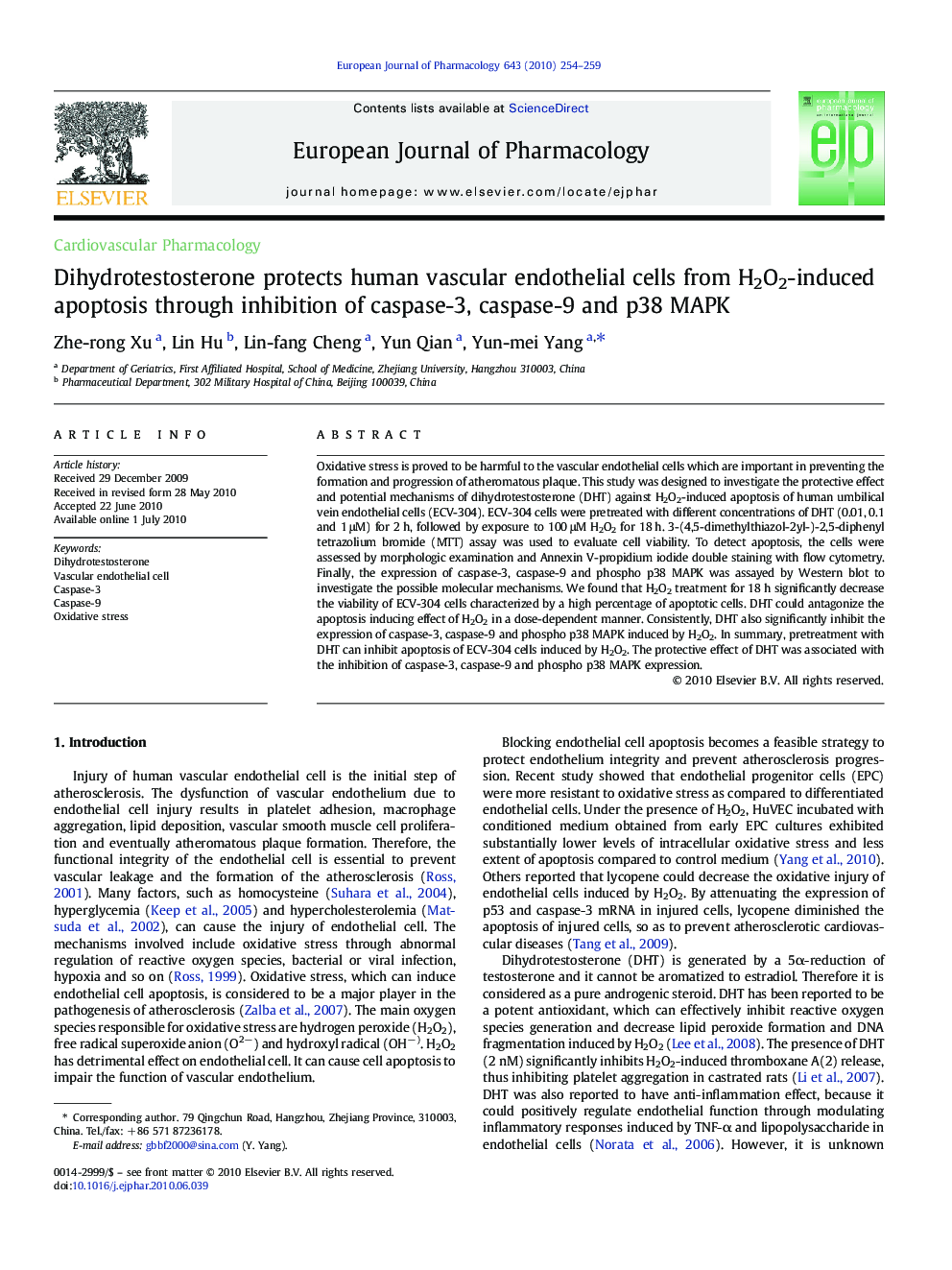| Article ID | Journal | Published Year | Pages | File Type |
|---|---|---|---|---|
| 2533270 | European Journal of Pharmacology | 2010 | 6 Pages |
Oxidative stress is proved to be harmful to the vascular endothelial cells which are important in preventing the formation and progression of atheromatous plaque. This study was designed to investigate the protective effect and potential mechanisms of dihydrotestosterone (DHT) against H2O2-induced apoptosis of human umbilical vein endothelial cells (ECV-304). ECV-304 cells were pretreated with different concentrations of DHT (0.01, 0.1 and 1 μM) for 2 h, followed by exposure to 100 μM H2O2 for 18 h. 3-(4,5-dimethylthiazol-2yl-)-2,5-diphenyl tetrazolium bromide (MTT) assay was used to evaluate cell viability. To detect apoptosis, the cells were assessed by morphologic examination and Annexin V-propidium iodide double staining with flow cytometry. Finally, the expression of caspase-3, caspase-9 and phospho p38 MAPK was assayed by Western blot to investigate the possible molecular mechanisms. We found that H2O2 treatment for 18 h significantly decrease the viability of ECV-304 cells characterized by a high percentage of apoptotic cells. DHT could antagonize the apoptosis inducing effect of H2O2 in a dose-dependent manner. Consistently, DHT also significantly inhibit the expression of caspase-3, caspase-9 and phospho p38 MAPK induced by H2O2. In summary, pretreatment with DHT can inhibit apoptosis of ECV-304 cells induced by H2O2. The protective effect of DHT was associated with the inhibition of caspase-3, caspase-9 and phospho p38 MAPK expression.
